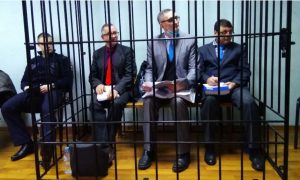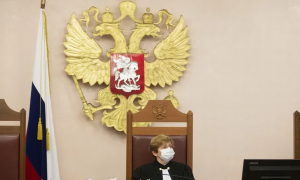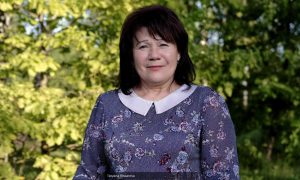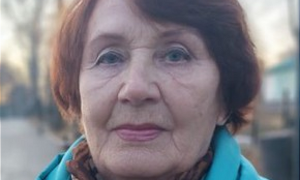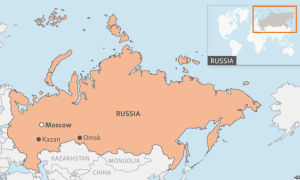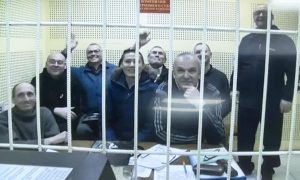| 12:00 |
The weather in Moscow is warm and sunny. Near the entrance to the court a large number of people were formed. Television journalists work. Among those present, there is a calm, friendly atmosphere. Noticeable increased security measures. Directly at the entrance there is a bus with police officers. At the entrance is a thorough search. Inside the building, no liquids are allowed to pass through. Employees of the Supreme Court, organizing hearings, carry out their work professionally and in harmony. Despite the large number of listeners, there are no failures. |
|---|---|
| 2:30 pm | The hearing began with the defendants’ petition to suspend the hearing due to the fact that private complaints were filed against the court’s yesterday’s refusals to satisfy most of the 17 applications submitted. The hearing must be suspended pending decisions on these complaints. |
| 14:33 | The Ministry of Justice objects to the suspension of the hearings. The court is removed to the advisory room. |
| 14:37 |
The court denies the motion to suspend the hearing. Omelchenko’s lawyer solicits the inclusion of materials that may indicate political motives for the persecution of Jehovah’s Witnesses. These are the documents of foreign organizations, such as the UN, OSCE, official statements of human rights organizations, as well as archival documents. |
| 14:40 |
The court decided to grant the application for the attachment of these materials. The court reports the essence of the matter and gives the floor to the Ministry of Justice. |
| 14:45 | The representative of the Ministry of Justice Borisov begins to expound the arguments that justify the necessity of banning all organizations of Jehovah’s Witnesses in Russia. She lists the decisions of the courts against the local religious organizations (MPOs) of Jehovah’s Witnesses. |
| 15:12 |
Concluding his speech, the representative of the Ministry of Justice asks the court to liquidate all organizations of Jehovah’s Witnesses, remove them from the register of legal entities and prohibit their activities. Asks to confiscate property and turn the court’s decision to immediate execution (that is, do not wait for the decision to enter into legal force). The judge asks the representative of the Ministry of Justice a counter question: why does the Ministry of Justice ask both to liquidate the legal entity and prohibit their activities. The judge is perplexed: how can you ban what does not exist. He clarifies whether the Ministry of Justice also demands that all unregistered groups be banned. The representative of the Ministry of Justice explains that he does not ask them to be banned, because Jehovah’s Witnesses did not provide the department with information about unregistered groups. |
| 15:16 | The new clarifying question of the judge: on what grounds does the Ministry of Justice apply a pre-judicial approach to the Management Center, if the center was not involved in participation in the case. The prejudice is applicable in the case of decisions that have already entered into force (that is, the court relies on them as already on the established fact) only with respect to the same subjects of law. Accordingly, the decisions made by the courts in respect of MPOs can not have a prejudicial effect on a centralized organization. |
| 15:17 | The representative of the Ministry of Justice argues that the Administrative Center knew about these cases, and the lawyers of the center attended them. |
| 15:20 | The Ministry of Justice in its suit confirms the necessity of liquidation of religious organizations due to the fact that organizations, in their opinion, violate the rights of citizens. The court asks the representative of Borisov the next clarifying question: which rights of citizens are violated? Borisova says that this is the right to receive medical treatment. According to their data, organizations prevent citizens from receiving medical treatment. In response to a rumble in the hall, the judge asks those present to restrain emotions. |
| 15:24 | The judge asks if the Ministry of Justice has evidence of their allegations about medical treatment. The Ministry of Justice is not ready to provide them. The judge is again puzzled, because the Ministry of Justice most recently conducted a large-scale inspection of Jehovah’s Witnesses and, if such facts were, they should have been identified. |
| 15:25 | The judge asks the Justice Ministry to clarify their statement that the activities of Jehovah’s Witnesses are a threat to public safety. The Ministry of Justice speaks of a threat to an indefinite circle of persons. |
| 3:30 pm | The judge asks the representative of the Ministry of Justice if they ask to prohibit the activities of Jehovah’s Witnesses, whether the believers who have gathered for prayer will be under threat of criminal prosecution. Ministry of Justice: yes, if the court finds them guilty of violating Art. 282.2 UKRF. |
| 15:34 | The judge asks the representative of the Ministry of Justice about the Federal List of Extremist Materials (FSEM) of the Ministry of Justice of Russia. The court is interested in the question: does the Ministry of Justice revise this list? The representative of the Ministry of Justice informs the court in an uncertain voice that sometimes this list can be revised. |
| 15:39 | The judge gives the respondents the opportunity to ask questions to the Ministry of Justice. |
| 15:40 | Zhenkov’s lawyer first of all asks the court to refuse to accept a copy of the court’s decision, which the Justice Ministry presented to the court a few minutes ago. The court decision describes the case when certain parents brought a sick child to the hospital. Doctors diagnosed a low level of hemoglobin and offered treatment with medicines or a transfusion of donor blood. Parents preferred medicines, but the hospital appealed to the court with a request to give her carte blanche for the use of donor blood. The decision also mentions that there was no threat to life, it was a question of planned treatment. The lawyer draws attention to the fact that in the court’s decision there is no mention of any of the organizations of Jehovah’s Witnesses. |
| 15:50 | The judge asks the representative of the Ministry of Justice: if there is no mention of Jehovah’s Witnesses, what does this document have to do with this case. |
| 15:53 | The judge shall postpone the determination of the attachment of this document. |
| 15:54 | Lawyer Zhenkov begins to ask questions to the representative of the Ministry of Justice. The first question is: does the Justice Ministry have any information about any violations that were committed under the influence of the literature of Jehovah’s Witnesses that was submitted to the FSEM. Answer from the Ministry’s representative: “No, we do not have such information.” |
| 15:57 | Lawyer Zhenkov specifies from the representative of the Ministry of Justice whether the respondent understands correctly that the Justice Ministry’s claims are reduced to three points: 1) import of extremist literature, 2) financing of MPOs, 3) failure to take effective measures to prevent extremist activity. The Ministry of Justice confirms that this is a true understanding, but this should be added “the threat of violation of human and citizen’s rights.” |
| 4pm |
Lawyers are unsuccessfully trying to find out exactly what human rights violations are meant. Females are trying to clarify the point “the failure to take effective measures to prevent extremist activity.” He asked whether the Ministry of Justice knew about the timely letters sent by the center of Jehovah’s Witnesses to all MROs about the inclusion of certain materials in the FSEM? The Ministry of Justice knows. The next question: what, in the opinion of the Ministry, would be an effective measure? The Ministry of Justice does not know the exact answer to this question. The lawyer asks the representative of the Ministry of Justice whether there is such a criterion of extremist activity as inaction. It’s obvious to everyone that there is no such criterion. |
| 16:10 | Zhenkov asks whether the Ministry of Justice knows that materials that are considered extremist constitute 0.1% of the entire literature of Jehovah’s Witnesses. The Ministry of Justice does not know this. Is it known to the Ministry of Justice that the Rostov Regional Court, which recognized 34 publications of Jehovah’s Witnesses as extremist, at the same time refused to recognize the extremist dozens of others. |
| 16:19 | Zhenkov clarifies whether it is known to the Ministry of Justice that literature has not been imported to Russia for two years. The Ministry of Justice knows this. Then there is a natural question, why exactly in 2017 the Ministry of Justice raised the issue of liquidation. The Ministry of Justice can not provide facts confirming that during the last 12 months the Management Center distributed “extremist” literature. |
| 16:13 | The Ministry of Justice informs that the date of entering materials into this list is not specified in the FEMC. |
| 16:24 | The judge asks the representative of the Ministry whether it is possible to file claims of the religious organization, as well as customs, for the fact that materials imported into the country that in the future will be considered extremist? How to know in advance what material will be included in the FEMC. The representative of the Ministry of Justice: no way, just contact the FSEM. |
| 4:30 pm | The representative of the defendant Yuri Toporov is trying to find out what the Ministry of Justice puts into the concept of “the structural subdivision of the world organization of Jehovah’s Witnesses”. What is a “world organization”? Is this some sort of legal entity? The Ministry of Justice believes that no, it is a question of a certain canonical concept. What is a “structural unit”? Is this a legal concept? No, rather a canonical connection. The next question is: in what sense then does the Ministry of Justice use this term in relation to the LRO, saying that they are “structural subdivisions of the Management Center”? In canonical or legal? The representative of the Ministry of Justice believes that this is the same. |
| 16:37 | Toporov is trying to find out whether the “extremist law” can be passed to the “structural subdivision” without making the organization itself. The Ministry of Justice is forced to admit that a warning must be issued to the entire organization. |
| 16:40 | The logical question of Toporov: if a warning was issued to a local religious organization and not issued to the Management Center, then how can this local organization be the “structural unit” of the center? No way. |
| 16:42 | The Ministry of Justice now believes that issuing a warning to the “structural unit” is not prohibited by law, which means that the prosecutor’s office could do it. What is not forbidden is allowed. The judge clarifies with the representative of the Ministry, were any of the notifications of the religious organization (the management center) then directed at least? There is no information that such notifications are sent. |
| 16:46 | A new question from Toporov to the Ministry of Justice. Does the law on combating extremism provide for the possibility of liquidating a “structural unit” without liquidating the organization itself? The representative of the Ministry of Justice: “According to your interpretation, does not provide”. The judge asks the plaintiff to accept the answer of the ministry in this form. |
| 16:53 | Questions to the Ministry of Justice are asked by the lawyer Omelchenko. He asks if there is a department in the Ministry of Justice capable of answering when a particular book appeared on the Federal List of Extremist Materials. The Justice Ministry believes that the answer to this question can be obtained through a judicial request. |
| 16:56 | Omelchenko asks about federal forensic centers under the Russian Ministry of Justice. He points out that these centers came to diametrically opposite conclusions about the presence or absence of signs of extremism. Question of Omelchenko: how could this be possible. The representative of the Ministry does not know. The next question is: why did the Justice Ministry support only the negative conclusions of the experts and did not support the positive conclusions? Unknown. Was the Ministry of Justice initiating a review of the decisions in cases when there was such a contradiction? Representative of such facts are unknown. |
| 16:58 | Omelchenko recalls that earlier today the court asked the Ministry of Justice whether the ministry initiated a review of the list of extremist materials after the amendments were made to the law, for example, that the Bible and quotations from it can not be recognized as extremist materials. There were no such initiatives on the part of the Ministry of Justice. |
| 17:07 | Questions to the representative of the Ministry of Justice are given by the representative of the defendant Maxim Novakov. He is trying to find out if the Ministry of Justice knows the circumstances of those events that are attributed to Jehovah’s Witnesses as “extremist activity”. For example, do they know why for the searches of Jehovah’s Witnesses the special services were de-energizing whole blocks in which the liturgical buildings are located. The Ministry of Justice does not know the facts. There are no other questions on the part of the defendant to the Ministry of Justice. |
| 17:13 | The court announces a break in the court session until April 7, 2017 10:00. The entrance to the building will be open from 9:00. |
- Saturday
- May 4th, 2024
